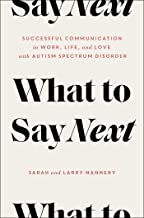COMMUNICATION DISORDER
A mental health disorder characterized by feelings of worry, anxiety, or fear that are strong enough to interfere with one’s daily activities
Examples of anxiety disorders include panic attacks, obsessive-compulsive disorder, and post-traumatic stress disorder.
Symptoms include stress that’s out of proportion to the impact of the event, inability to set aside a worry, and restlessness.
Treatment includes counseling or medications, including antidepressants.
Age Onset: Children or following strokes or brain injuries.
Symptoms: Not based on perception difficulties such as blindness or deafness; affecting understanding or production of speech.
Progression: Performance significantly lower than expectations for that age of child or adult.
Causes: Developmental in children; stroke or brain damage in adults may cause “aphasia,” the inability to understand or express language.
Therapies: Mostly by speech and language therapists.
Amazon or Library Book: What to Say Next
Click the book to link or order from Amazon.

